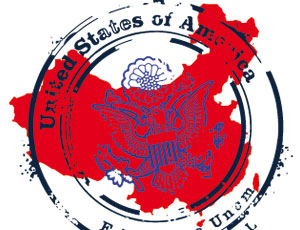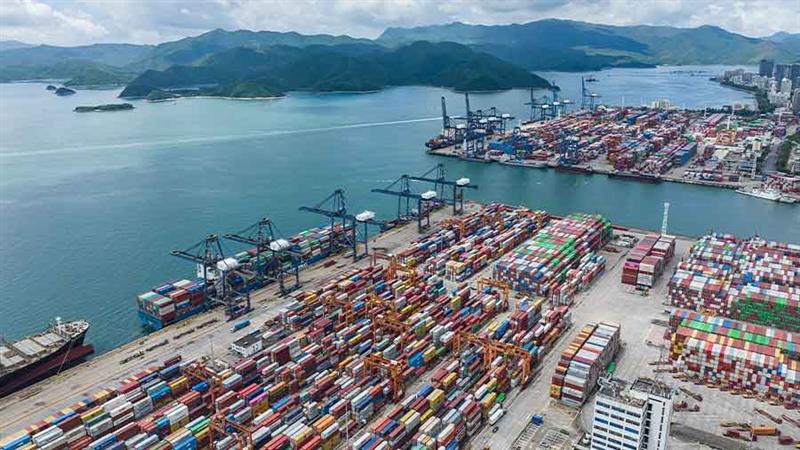Letters from America: Selling to China and the Right to Review Your Sales Contracts
FCPA issues can arise even if you don’t have a China presence
This is Part VII of our ongoing Letters from America to Asia Series, featuring opinions and observations on America’s trade relations with China and emerging Asia from Chris Devonshire-Ellis.
 Nov. 12 – In this column over the past few weeks we have discussed the reasons why China is developing as a serious market for the consumption of American products, as well as the availability of funding and cheap credit from the U.S. government to facilitate and assist domestic manufacturers with their exports.
Nov. 12 – In this column over the past few weeks we have discussed the reasons why China is developing as a serious market for the consumption of American products, as well as the availability of funding and cheap credit from the U.S. government to facilitate and assist domestic manufacturers with their exports.
Today we will discuss importation issues and the need to be aware that trading in China can trigger “permanent establishment status,” in addition to issues surrounding contracts with buyers, the need for FCPA compliance, and how to insist upon “right to review” your Chinese distributors operations – even though you may not have a legal presence in the country. These issues help form the building blocks necessary to develop your business into an export-ready entity.
An initial question for those companies seeking to sell their products in China is the nature of these products, and whether any restrictions may apply to their importation. Despite China’s accession to the WTO and commitment to relax import restrictions, many formal and informal barriers remain, including the well known examples of books, games and movies, in addition to numerous products in other industries China is seeking to shelter from foreign competition. Such barriers are typically erected through the imposition of an array of regulations and/or tax structures to financially, if not legally, discourage you from trading in such items. In the case of books, for example, the sale and distribution of these (regardless of their content) requires using a Chinese state-owned enterprise, whose cut of the retail price is typically 75 percent (international average: 20-30 percent).
In addition to these “hidden” industry barriers and restrictions, one must also consider the direct costs of import tariffs and taxes. China’s General Administration of Customs annually publishes import tariff rates, import value-added tax (VAT) rates, import consumption tax rates, and export tariff rates. The rates are organized and identified on the basis of the product’s “HS Code” (Harmonized Commodity Coding System).
Accordingly, the financial viability of your product being a success in China must first be established with respect to such barriers. It saves a lot of time, energy and the avoidance of failed dreams if this is the first question answered. If China doesn’t work out – don’t worry – Asia is huge and restrictions in China may not apply in India or within the ASEAN.
In terms of the sale and distribution of products within China, a company must consider whether it will sell directly from the United States to its Chinese customers or sell through a local presence. If selling directly from the United States, then utilizing a local sales force on an independent contractor basis may be required. If so, the sales force would be compensated on a commission basis. This structure minimizes the foreign investment required as well as the exposure to tax liabilities in comparison to establishing a local company or establishing a formal contractual partnership with a Chinese distributor.
However, there a number of obvious disadvantages to this approach. There is a loss of control over the sales effort, risk that sensitive information could be leaked to competitors, and the local sales practice could potentially expose the corporate headquarters to liability under laws such as the Foreign Corrupt Practices Act. Because such local contractors could be individuals with no corporate legal presence, the availability of legal recourse for misbehavior may be limited. Some of these risks may be mitigated through routine visits and oversight of international sales staff sent from the corporate headquarters. However, it is worth noting that if such international employees spend a sufficient amount of time in China (often six months under relevant treaties) – or if such staff are Chinese locals directly employed by the headquarters – the corporate parent may be deemed to have a tax “permanent establishment (PE)” in China and be subject to the full range of Chinese taxes. Fines may also apply. If you engage Chinese nationals “indirectly” by having a soft approach and wiring them money to their personal bank accounts directly from the United States, your PE risk increases as you are “deemed” to have Chinese employees. Engaging Chinese nationals on such a basis is therefore not a long-term solution, and in any event, is in breach of several Chinese laws concerning tax liabilities, social security and other related issues. This aspect needs to be carefully considered and the risk element understood.
If it’s desirable to sell and distribute through a local presence, then either a local Chinese partner could be identified or a foreign invested enterprise such as a trading company (FICE) could be established and staffed.
Where a local Chinese company with an effective distribution channel can be identified, it may be highly desirable to leverage this infrastructure. However, it would of course be critical to negotiate a contractual relationship with such a distributor that creates the appropriate incentives for the distributor to successfully promote the foreign product and protect the brand. Furthermore, the higher the level of dependence on the local distributor, the more important it would be to create mechanisms of accountability. For instance, where a local Chinese company is the exclusive distributor of an American product, it would be advisable for the American company to seek certain rights of financial audit and review.
In addition to this, there is of course the well-known problem of IP issues in China. If you have brands, you must mark them. If you have patents, you must register them. In fact, in the terms of the latter, if you possess inventions and technology that remain critical to your global or domestic American success, it may be a good idea to stay away from the China market completely, such is the risk. It is not advisable to walk into this lion’s den of copyright infringement without being able to suffer and endure the scratches and bites. If you cannot tolerate such abuse, China is a market best left alone.
When an American company has determined its target Chinese market is of sufficient size and quality, it may move to the next phase of establishing an official legal presence. The most commonly utilized formal legal presence is the wholly foreign-owned enterprise (WFOE). Where companies are seeking to engage in specialized trading activities, entering restricted industries, or are pursuing specialized investments, other legal entities may be more appropriate.
The complexities of the Chinese business licensing system and taxation regime require careful consideration on how to structure such investments. But that is another story – albeit one covered in some detail as regards your options in our complimentary download “An Introduction to Doing Business in China.”
Getting ready for exports into China – A quick checklist
- What are the financial and dutiable implications of importing my product into China?
- Do I qualify for federal or state support when exporting?
- What is the appropriate contractual relationship with my buyer or distributor?
- Do I have the “Right to Review”?
- Will I have any possible FCPA issues with my contracted sales team?
- How can I avoid triggering permanent establishment status?
- Have I registered my trademark or patent correctly?
Dezan Shira & Associates provides American and international companies with business advisory, legal and tax advice concerning exporting to China and Asia. The firm maintains 17 offices across China, Hong Kong, India, Singapore and Vietnam, and has a liaison office in Charlotte, North Carolina. Dezan Shira also employs a number of American lawyers and tax advisers in their offices throughout Asia.
To contact the practice concerning issues relating to exporting to China and Asia, or for professional advice concerning corporate establishment, tax and compliance issues, please email the firm at asia@dezshira.com or visit www.dezshira.com.
Dezan Shira & Associates is an approved U.S. Department of Commerce Service Provider.
Related Reading
 An Introduction to Doing Business in China
An Introduction to Doing Business in China
Asia Briefing, in cooperation with its parent firm Dezan Shira & Associates, has just released this 40-page report introducing everything that a foreign investor should be familiar with when establishing and operating a business in China.
 Double Taxation Avoidance Agreements
Double Taxation Avoidance Agreements
In this issue, we look at the evolution of the legal framework of double taxation agreements in China, including the foundations of anti-avoidance, obligations in reporting offshore transactions, how to qualify as a beneficial owner and how to claim treaty benefits. We also outline the interpretations given in Circular 75 of the China-Singapore DTA, which was the first time that the Chinese tax authorities really opened up about DTA interpretations.
 Transfer Pricing and Cross-Border Inter-Company Transactions
Transfer Pricing and Cross-Border Inter-Company Transactions
In the issue, we further outline what information documentation should consist of, and what transfer pricing methods can be applied. We also look at payment arrangements among HQ, WFOE, and clients in China.
 The Foreign Corrupt Practices Act and its Impact on China Subsidiaries
The Foreign Corrupt Practices Act and its Impact on China Subsidiaries
This issue of China Briefing Magazine is dedicated to helping companies understand the Foreign Corrupt Practices Act and establish controls to prevent (and, if necessary) resolve FCPA noncompliance.
 Drafting Contracts in China
Drafting Contracts in China
In this issue of China Briefing, we review some common issues that occur with OEM agreements and list some contractual issues to consider when entering into such agreements.
The Complete ‘Letters from America to Asia’ Series
A complete list of articles from our ongoing ‘Letters from America to Asia Series’ featuring opinions and observations on America’s trade relations with China and emerging Asia.
Delaware and Nevada Holding Companies for Chinese Foreign-Invested Enterprises
Co-Investing in China with Chinese Partners
Double Taxation Agreements for China Investment
- Previous Article China Cuts Administrative Examination and Approval Items
- Next Article Shenzhen Clarifies Transitional Financial Support Policies for VAT Reform
























